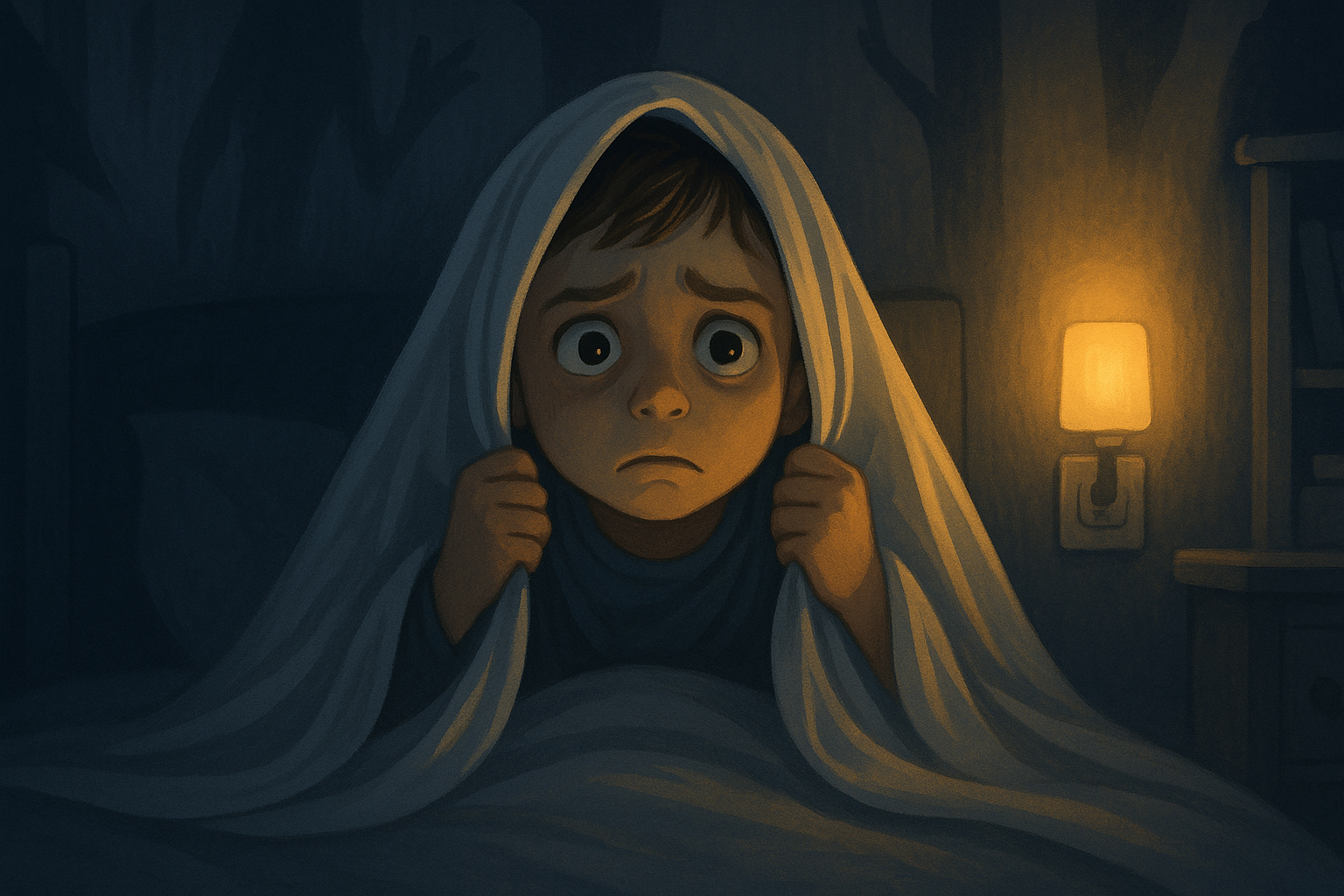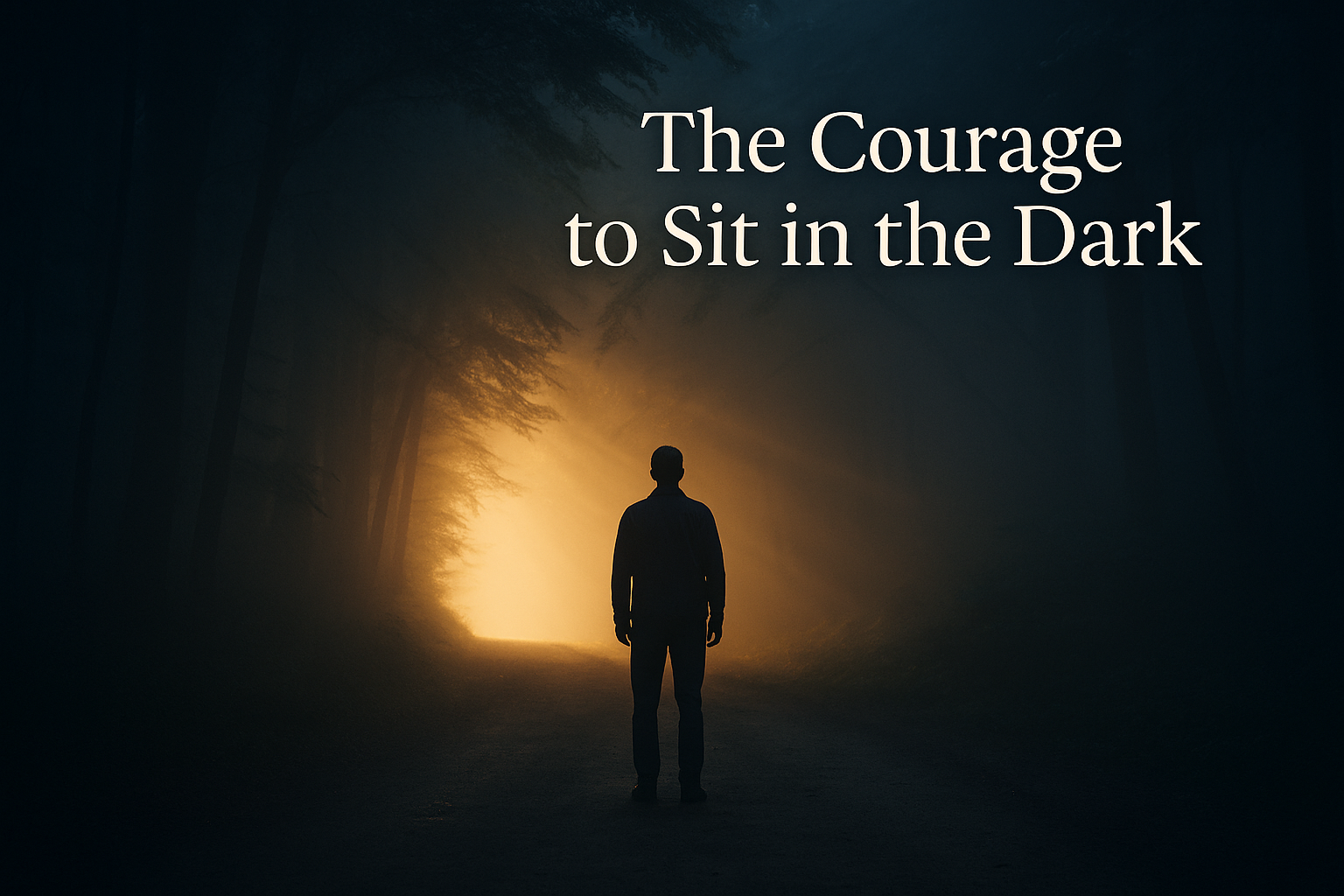The Surprising Science Behind Fear
Why Fear Might Be Your Best Compass
It Starts Early

Plug in a night light if you’re scared of the dark.
Run away.
Cover your eyes during the scary part of the movie.
If you admit to fear, you’re called a chicken or a scaredy-cat.
As children, we’re taught to ignore fear, to push it away, and never admit to
it. There are some valid lessons in those lessons. The the growling dog chasing your bike has teeth and can hurt you. But the general message that fear is bad is wrong.
Fear isn’t just a warning signal. It’s a neurological pathway to growth.
Fear and the Physician
Physicians are not strangers to fear. And I’m not talking about the clinical fears like missing a diagnosis or making a medical error. I’m talking about the personal fears that wake you up at 3 AM: the fear of leaving a “good” job that’s slowly draining you; the fear of disappointing people if you pivot away from clinical medicine; the fear that you’ve invested too much to change course now—or that wanting something different makes you ungrateful or weak.
Here’s what few people realize: your fear isn’t a stop sign. It’s actually one of the most sophisticated guidance systems you have. And the science backs this up in ways that might surprise you.
The Neuroscience of Fear
When you experience fear, your amygdala, an almond-shaped structure deep in your temporal lobe, lights up like a Christmas tree. It triggers a cascade: norepinephrine floods your system, your prefrontal cortex temporarily down-regulates, and your body prepares for action.
We’ve been taught to see this as a protective, primitive response to physical danger. But here’s what’s fascinating: your brain processes the fear of career stagnation, the fear of unfulfilled potential, and the fear of living someone else’s dream using the same neural pathways as physical threats.
Your nervous system doesn’t distinguish between a growling dog and a soul-crushing job. It just knows something matters deeply to you.
And that's the key insight: you only fear things that matter. You don't lose sleep over things you don't care about. Fear is your psyche's way of saying, "Pay attention. This matters."
The neuroplasticity research is clear: when we engage with fear rather than avoid it, we create new neural pathways. We literally rewire our brains for courage.
The anterior cingulate cortex, your brain's conflict monitor, becomes more efficient at processing uncertainty. Your prefrontal cortex learns to override the amygdala's alarm bells when appropriate.
In other words, facing fear doesn't just build character. It builds brain architecture.

I'm not suggesting you stop and pet a growling dog or make reckless decisions. But I am suggesting that the fear you feel about making a change, about exploring nonclinical work, starting that side project, or finally admitting you want something different—might be the most honest signal you've received in years.
Sometimes it's okay to sit in the dark without plugging in a nightlight. Because on the other side of that fear is often the exact life you've been too afraid to claim.
"Everything you want is on the other side of fear."
— Jack Canfield
Coach's Corner
Fear Inventory: What's Your Amygdala Trying to Tell You?
Set a timer for 7 minutes. Grab a piece of paper or open a notes app, and complete these prompts:
- Name the fear: What career-related fear has been showing up most consistently for you lately? Write it out in one clear sentence. (Example: "I'm afraid that if I leave clinical medicine, I'll have wasted 10 years of training.")
2. Flip it: Now rewrite that fear as a statement of what you actually want. (Example: "I want my training to serve a purpose that feels meaningful to me, even if that looks different than I originally planned.")
3. Ask the deeper question: If this fear wasn't present, if you felt completely safe, what would you do differently in your career this year?
Don't overthink it. Just let your hand move. You're not committing to anything; you're just listening to what your nervous system has been trying to tell you.
The goal isn't to eliminate fear. It's to understand what it's protecting—and whether that thing still serves you.
If this exercise brought up something real for you—if you felt that familiar tightness in your chest or that whisper of "yes, but..."—I want you to know you're not alone in this. And you don't have to figure it out by yourself.
I've built two resources specifically for physicians who are ready to move through fear rather than around it:
If you're the self-directed type: Check out my self-paced online course, where I walk you through the exact frameworks I use with coaching clients to gain clarity, build confidence, and design a career that actually fits your life. You can work through it on your own timeline, at 2 AM between shifts or on a Sunday morning with coffee.
If you'd benefit from a conversation: Let's talk. I offer free coaching sessions where we can dig into what's really going on—no sales pitch, no pressure, just two physicians having an honest conversation about what's possible. Sometimes all it takes is one conversation to shift your entire perspective.
Your fear is information. Let's figure out what it's trying to tell you.
Here's to embracing the dark, and finding what's waiting on the other side,
Ben







Responses